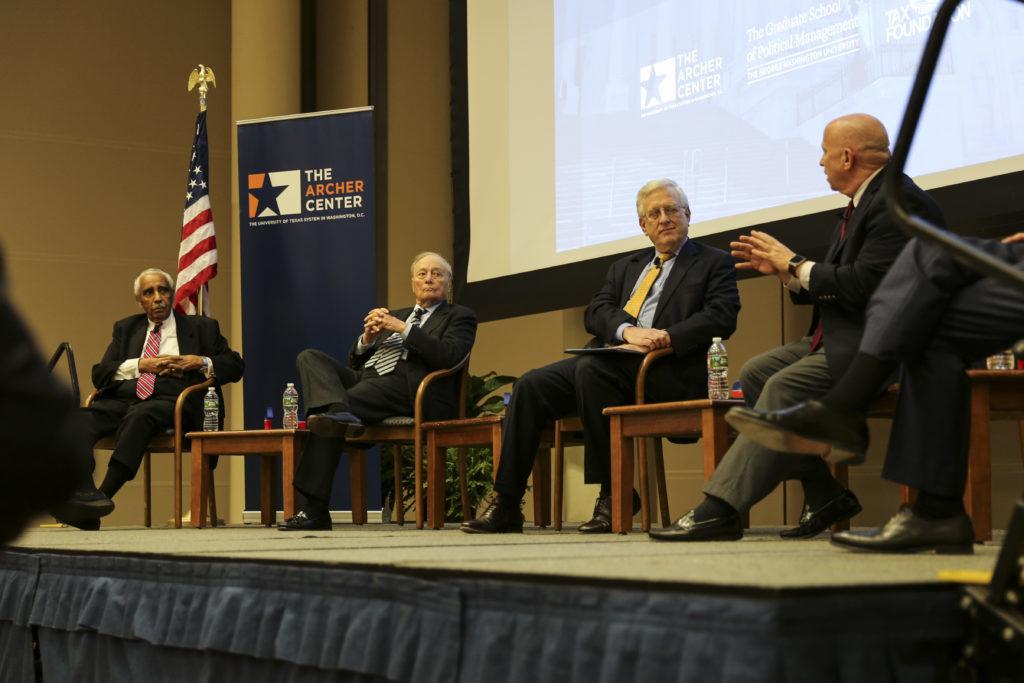Four current and former members of the House Ways and Means Committee discussed the future of tax reform and polarization in U.S. politics at a panel discussion Monday night in the Marvin Center’s continental ballroom.
The discussion, hosted by the Graduate School of Political Management, featured committee chairman Rep. Kevin Brady, R-Texas, ranking member Rep. Richard Neal, D-Mass., and former chairmen Rep. Charles Rangel, D-N.Y., and Rep. Bill Archer, R-Texas.
The conversation centered on the prospects of tax reform in the current Congress, which the Ways and Means Committee would be responsible for crafting.
The conversation was moderated by Richard Cohen, a journalist and chief author of “The Almanac of American Politics.” It was co-hosted by the Archer Center at the University of Texas and the Tax Foundation.
Here are three takeaways from the event:
1. Impact of a unified government
The panelists discussed how a Republican controlled White House and Congress could impact the changes of passing a landmark tax bill.
Brady said he would “strongly prefer” a bipartisan effort on tax reform. He said that the committee has tried to work with Democrats to address issues like unemployment benefits.
Rangel, who chaired the committee from 2007 until 2010, said that even with one-party control of the federal government, he wasn’t sure “how unified the government actually is.”
“In my time the Democrats ran everything, but the Republicans were given their time on the court. I disagree that one party can get something done, it depends on the commitment of the people involved,” he said.
Rangel said that often “re-election was the big priority on the Hill.”
Neal added that today’s Congress was not focused enough on the difficult work of crafting and passing legislation.
“The Congress right now is made of crusaders, Ways and Means needs legislators,” he said
2. Trump’s role in tax reform
Archer said that tax reform often is not accomplished without a strong push from the president. He pointed to the 1980s, the last time major tax reform was enacted, when he said President Ronald Reagan made reform a top priority.
“There was never a push by Obama,” he said. “We cannot get reform without the president’s input. The American people have to make the decision that the tax code is so broken that they are willing to get behind it.”
Brady said this year could be a particularly important year for tax reform because President Donald Trump is placing increased importance on the subject. Trump made cutting taxes across the board a key policy platform of his presidential campaign.
“The committee has an abundance of good tax ideas,” Brady said. “Trump is making it a priority, there is a timeline, an urgency.”
3. A polarized nation
Brady said the current polarization among members of different political parties nationwide and in Congress has made passing significant legislation more difficult.
“It is no question that we are a polarized country. In my opinion it makes it harder to find common ground than it was in the 80s,” he said.
Rangel said the tense political climate represented a “different stage in our country.”
“We cannot talk about bipartisanship if we don’t talk about how our leadership operates,” he said.





